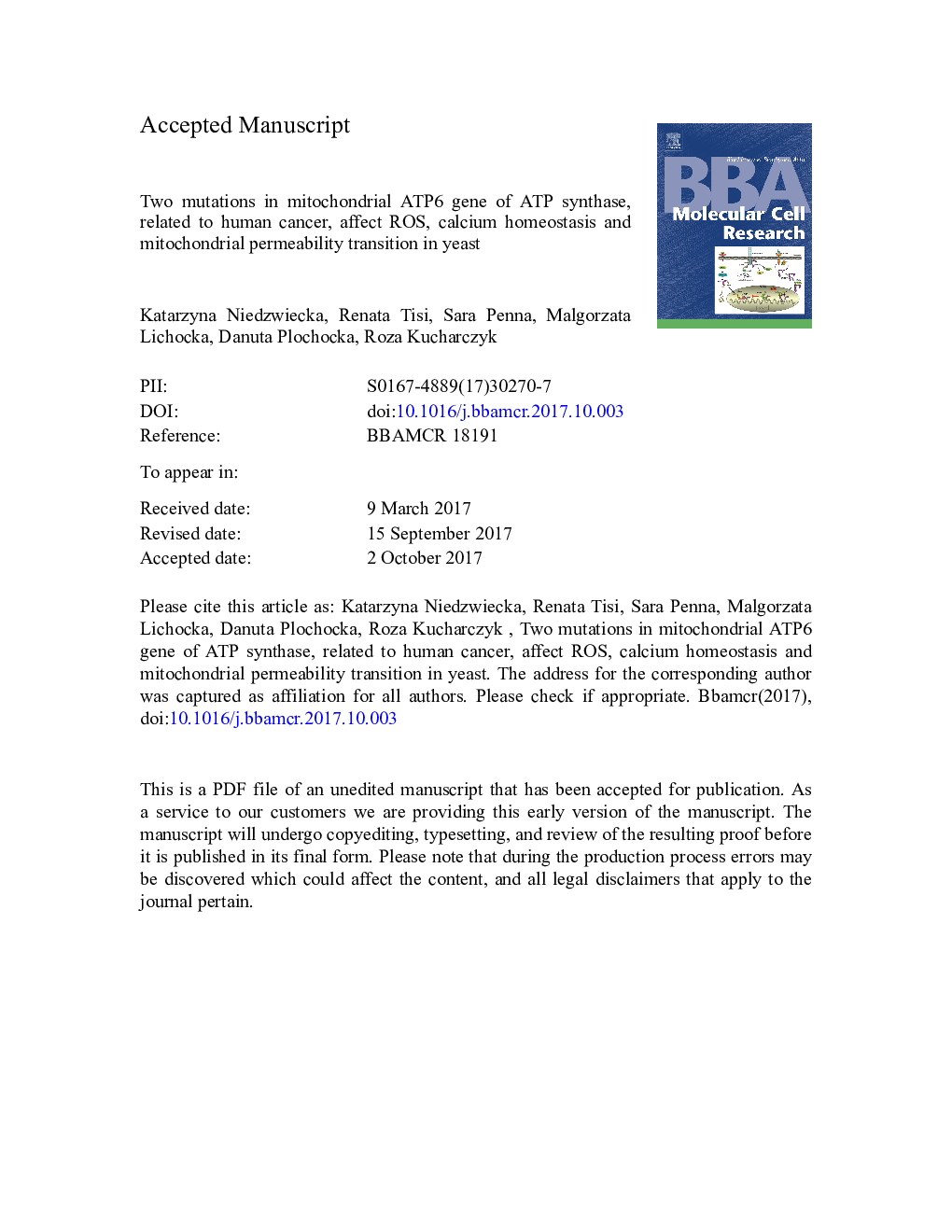| Article ID | Journal | Published Year | Pages | File Type |
|---|---|---|---|---|
| 8303765 | Biochimica et Biophysica Acta (BBA) - Molecular Cell Research | 2018 | 42 Pages |
Abstract
The relevance of mitochondrial DNA (mtDNA) mutations in cancer process is still unknown. Since the mutagenesis of mitochondrial genome in mammals is not possible yet, we have exploited budding yeast S. cerevisiae as a model to study the effects of tumor-associated mutations in the mitochondrial MTATP6 gene, encoding subunit 6 of ATP synthase, on the energy metabolism. We previously reported that four mutations in this gene have a limited impact on the production of cellular energy. Here we show that two mutations, Atp6-P163S and Atp6-K90E (human MTATP6-P136S and MTATP6-K64E, found in prostate and thyroid cancer samples, respectively), increase sensitivity of yeast cells both to compounds inducing oxidative stress and to high concentrations of calcium ions in the medium, when Om45p, the component of porin complex in outer mitochondrial membrane (OM), was fused to GFP. In OM45-GFP background, these mutations affect the activation of yeast permeability transition pore (yPTP, also called YMUC, yeast mitochondrial unspecific channel) upon calcium induction. Moreover, we show that calcium addition to isolated mitochondria heavily induced the formation of ATP synthase dimers and oligomers, recently proposed to form the core of PTP, which was slower in the mutants. We show the genetic evidence for involvement of mitochondrial ATP synthase in calcium homeostasis and permeability transition in yeast. This paper is a first to show, although in yeast model organism, that mitochondrial ATP synthase mutations, which accumulate during carcinogenesis process, may be significant for cancer cell escape from apoptosis.
Related Topics
Life Sciences
Biochemistry, Genetics and Molecular Biology
Biochemistry
Authors
Katarzyna Niedzwiecka, Renata Tisi, Sara Penna, Malgorzata Lichocka, Danuta Plochocka, Roza Kucharczyk,
